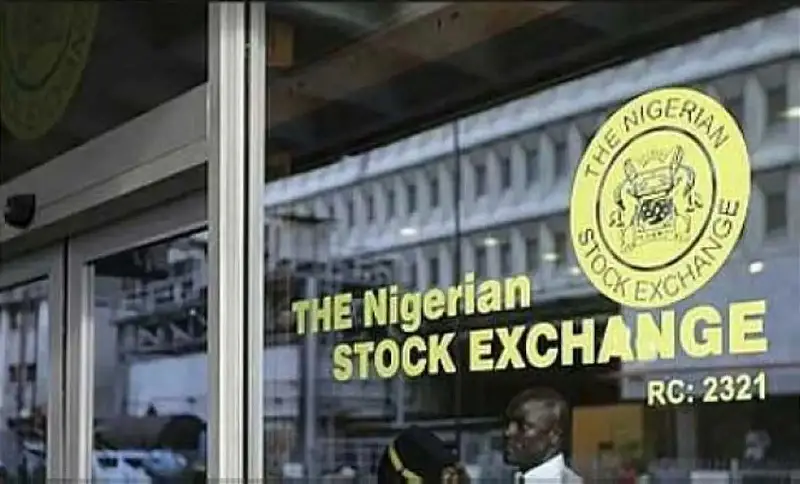Share!
The Nigerian Exchange Limited (NGX), attracted a total of N369.83 billion new listings across equities, FGN Bonds, mutual funds, and derivatives categories in seven months of 2023.
The numbers obtained by Economic Confidential revealed that corporate entities shun listing on NGX as FGN Bonds dominated listing on the bourse in the period under consideration.
During the period, Lagos state government is the only state that raised capital from the NGX despite pressure on State governments to bridge infrastructure deficits, create jobs and improve living standards.
Further analysis showed that so far in seven months of 2023, FGN Bonds listings contributed 4.46 per cent or N16.48 billion out of the N369.83 billion in seven months of 2023 and it constituted FGN Savings Bonds with maturities ranging between 2024 and 2026.
Also, corporate entities listing on NGX stood at N204.66 billion, dominated by Dangote Industries Funding Plc, which listed N112.42 billion in March 2023.
Among the top corporate listings are Africa Plus Partners Nigeria Limited with N21.65 billion mutual fund, Africa Infra Plus 1, the first Carbon Plus naira-denominated fund to be listed on the Exchange.
Taj Bank issued N31.36 billion Sukuk under its Sukuk Issuance programme. FTN Cocoa Processors Plc and Neimeth International Pharmaceuticals Plc both did supplementary listings of N850 million and N3.68 billion of shares respectively.
The Lagos State Government issued the only bond by a sub-sovereign entity with its N137. 33 billion series 1V, 10-year 13 per cent, Fixed Rate Bonds due 2031 under its N500 billion debt issuance program.
The NFX numbers showed that the FGN Bond listings on the NGX in seven months of 2023 are mainly the FGN Savings Bond as against the previous year when it was combination of both Federal Government Bond and Savings Bond.
In a related development, the Debt Management Office (DMO), said a total of N6.79 billion FGN Savings Bond was raised between January and July 2023.
DMO had revealed that the FGN Savings Bond has received a total subscription of N45.14 billion between its inception in 2017 and 2022.
Recall that on January 2, 2023, the debt office announced 2 FGN Savings Bonds for subscription as its first bond issuance for 2023.
DMO in its statement said that one is a two-year FGN Savings Bond due in January 11,
2025, at the interest rate of 9.600 per cent per annum as interest rate reached 9.070 per cent per annum in July 2023 auction.
Analysts believe the decline in FGN Bond listing this year showed that the federal government had borrowed less money from the primary market during the period under review compared to the corresponding period of 2022.
The Vice Chairman, HighCap Securities Limited, Mr David Adonri, said, “The reduction of FGN Bond listing could be an indication that government borrowed less in the domestic market and its implication is that it could affect liquidity in the secondary market.
“Although the decline could also be that the FGN Bonds were not listed on the Exchange during the period under review as only the Savings Bonds were captured. Both externally and internally, the immediate past government had taken more debt. This is increasing the risk of sovereign default and economic nightmares.
“The hard currency earning capacity of Nigeria may also not be sufficient, now and in near future, to enable the present government to service the mounting foreign debt. Internally, the borrowing has now reached the alarming point of crowding out the productive real sector.
“This poses grave danger to the capacity of the real sector to create wealth and generate productive employment. In every capitalist economy like ours, government has primary obligation through policies and actions to prevent any crowding out effect and to ensure larger capital formation by the private productive real sector.”
On his part, capital market analyst, Mr. Rotimi Fakeyejo said, “We know that previous government borrowing was high. Excessive borrowing by the previous government at the expense of the private sector, which is the engine room of the economy brings to question the soundness of their economic strategy.
“The careless use of debt as a financing tool is fraught with calamitous dangers. Even more disheartening is when the debts are principally used to finance consumption or to unwisely finance few secondary infrastructure (Roads and Rail).
“These will neither enhance the productive momentum of Nigeria’s light industries nor make the economy self-reliant. The disorderly growth of the economy the last administration pursued can only mislead the country into an abyss if public borrowing is not curtailed to lower cost of funds so that production will be competitive.”
However, the month of August has commenced on a strong note as the NGX last week announced the listing of the FG’s N130 billion Sovereign Sukuk through the DMO. The 10-year 15.64 per cent Ijara Sukuk is due in 2032.
According to DMO, the Sovereign Sukuk opened for subscription in November 2022 with an initial offer of N100 billion and garnered immense interest from investors with a remarkable subscription level of N165.25 billion.
This represented over 165 per cent of the amount offered. In a bid to accommodate the needs of diverse investors who subscribed to the Sukuk, N130 billion was allocated.
The total Sovereign Sukuk issued from 2017 till date currently stands at N742.557 billion and the proceeds have facilitated the construction and rehabilitation of over 75 roads and bridges across the country. DMO said in a statement.
“The listing of the N130 billion Sovereign Sukuk on the NGX will expand the range of financial offerings available to investors in the capital market. The opportunity to buy and sell the Sovereign Sukuk will provide liquidity to investors and promote price discovery,” the DMO added.
Related posts:
- UPDATED:Finally NERC Suspends Proposed Electricity Tariff Increase Over Coronavirus
- Fuel Scarcity Looms In Lagos As Petroleum Tanker Drivers Down Tools Over Issues Of Extortion, Harassment
- WTO: We’re Keeping The Positivity Going, Says Okonjo-Iweala Amid US Opposition
- Ex-Minister of Finance, Zainab Ahmed gets World Bank job
